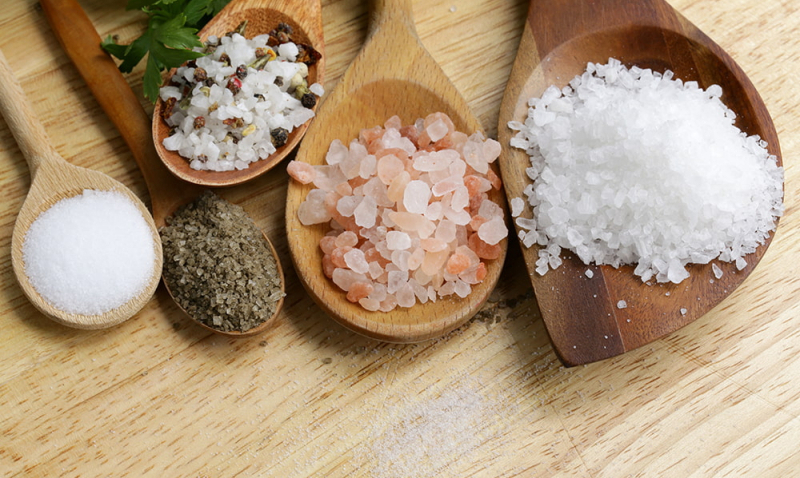
Which salt is the most useful and which is more harmful
0
Salt, also known as sodium chloride, is a natural compound found everywhere, from food to our tears. Like any other substance, salt in large quantities can cause serious harm to the body: from chronic dehydration to serious problems with the heart and kidneys. We have collected the most common myths related to salt and analyzed what is true and what is not.
MYTH 1: “Salt is white death”, so it should be abandoned.
An excess of salt in the body can cause problems with the kidneys, blood vessels and heart, which is really dangerous in the long run, but the key word here is “excess”. Possible health problems are not at all a reason to choke on absolutely unsalted food and delete this supplement from your life. We need salt in certain quantities. Sodium is used by the body to maintain normal blood pressure, fluid balance, and normal muscle and nerve function. In short, a complete rejection of salt will bring problems no less than its excess, so you should not go to extremes.
MYTH 2: Pink/rock/sea salt is more useful than regular salt.
< p>No matter how salt is extracted, it is still salt, so it is still necessary to control its amount. As for the vitamins and minerals contained in various types of salt, there are so few of them that they remain practically unnoticed by the body. For example, sea salt contains calcium, potassium, magnesium, and their content per 100 g is quite large. But if you take into account that it is not recommended to consume more than 5 g of salt per day, then there will be nothing left of these minerals. As for iodine, the content of which everyone praises sea salt so much, after some time it does not remain there at all. Iodine is a volatile substance that perfectly evaporates from the surface of salt crystals. Therefore, it is better to get all the necessary minerals from fruits and vegetables, and strictly control the amount of salt.

MYTH 3: We eat salty food , because our body requires it.
The need for salty food is exclusively acquired. The body can find the 3-5 g of salt necessary for normal work by itself in ordinary, not very salty food (sodium is found almost everywhere, just in different amounts). If you constantly want to add salt to your food, because it seems fresh to you, this is not a need of the body, but a question of the work of the taste buds. The more often you eat salty food, the less sensitive receptors become to it, that is, what seemed salty enough to you a month ago, will now cause a desire to add more salt. If a food to which you have added a decent amount of salt seems bland, try an experiment: give up the added salt completely for a week, and then try the dish again. You probably won't even be able to finish it, it will turn out to be so salty.
MYTH 4: A high salt content in food is always palatable.
One of the most common causes of excess sodium in the body. Salt is added to almost all ready-made products: from bread to chocolate. As a rule, in small quantities and in combination with other ingredients that mask the salty taste. But from all these “unsalted” products at first glance, the daily salt consumption is several times higher than the norm. Try as much as possible to cook yourself and from simple products to be 100% sure of the ingredients. And it is better to abandon store-bought sauces – the percentage of salt in their composition is simply terrible.
MYTH 5: Problems caused by excess salt are always visible.
The main mistake, probably, of all mankind – ” if there was something wrong with me, I would have noticed by now.” Most problems (not only from excess salt, but in general) do not reveal themselves until the situation becomes critical. If you regularly abuse salty food, for many years the noticeable symptoms will be only thirst and swelling, as if there is nothing to worry about. A University of Sydney study found that more than 50% of people living with chronically high blood pressure don't even know it. Therefore, if you love salty food and do not deny yourself of it, you should be more careful, because the consequences may appear after 5 or even 10 years, and they will be very serious.









Leave a Reply